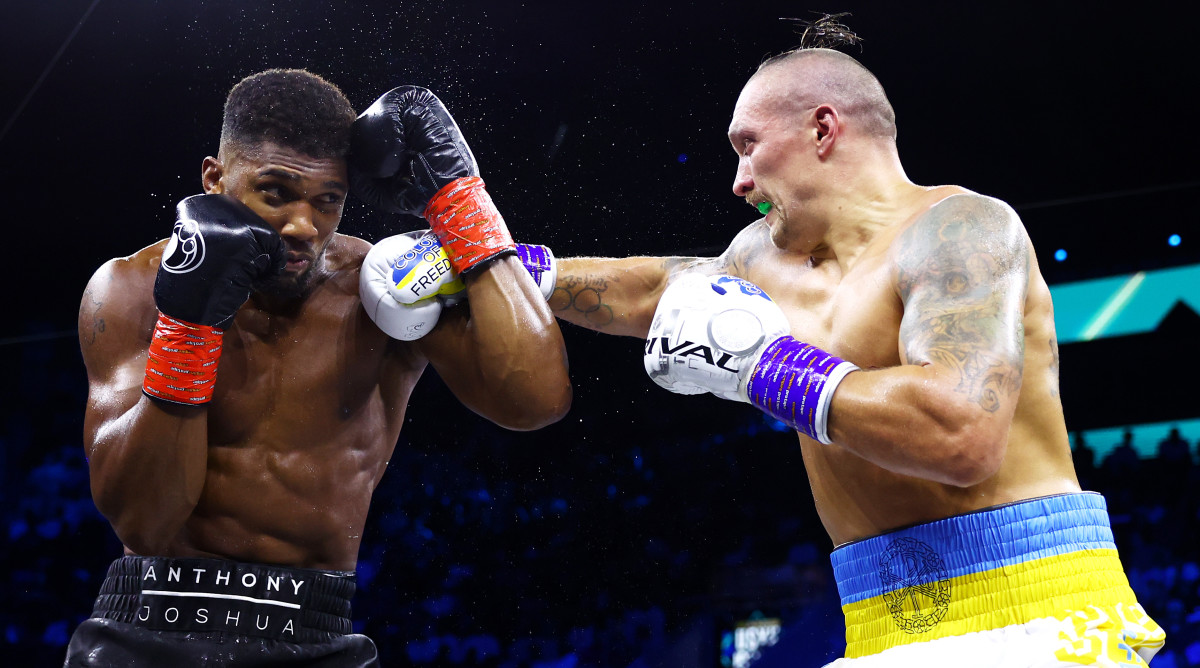Usyk’s Win Over Joshua Sets Up a Massive Potential Heavyweight Bout


It was repeat, not revenge
For weeks there have been stories about the “new” Anthony Joshua. About his new trainer, or trainers, with Robert Garcia and Angel Fernandez taking the reigns from Rob McCracken. About Joshua’s new mindset, specifically his insistence that he would smash—Joshua’s word, not ours—Oleksandr Usyk in the rematch.
Turns out, Usyk-Joshua II looked a lot like the original.
Usyk was, well, Usyk. His head movement was excellent. His footwork was brilliant. His defense, particularly when it came to slipping Joshua’s punches, was on point. He got in trouble in the ninth round, when a Joshua body attack put him on the run, but he recovered with a dominant tenth, where he battered Joshua with slashing left hands. Fighting at 221 pounds—roughly the same weight he was at for the last fight—Usyk looked comfortable in the division he’s now officially one of the men to beat.
Joshua? As far as adjustments go, there wasn’t many. Joshua was more committed to the body—AJ and his team believed Usyk was vulnerable there—but beyond the ninth round he didn’t deliver a sustained attack. The firefight Joshua hinted at never materialized. He allowed the fight to take place largely in the middle of the ring (like the first fight), allowed Usyk to largely dictate the pace (ditto) and wound up on the wrong end of a decision.
Usyk wins—is Tyson Fury next?
Seems obvious, no? Usyk has three pieces of the heavyweight title. Fury has the fourth. After the fight, Usyk said he would fight Fury or he wouldn’t fight again. Fury, who retired (again) earlier this week, took to social media and, using some colorful language, accepted. Fury-Usyk isn’t as big as Fury-Joshua, but an undisputed heavyweight championship fight is a big deal anywhere, in the UK or abroad. Expect Fury and Usyk’s teams to get together and reach a deal quickly.
Joshua must now rebuild
There’s no shame in losing to Usyk, who has a legitimate case to be called the No. 1 pound-for-pound fighter in boxing. But Joshua has some work to do. He has now lost two straight and three of his last five fights. He’s not the same fighter who tore through the heavyweight division early in his career. The fearless power puncher who stopped Wladimir Klitschko has been replaced by a more tentative fighter less willing to engage. He’s still a draw and, armed with a freshly signed global rights deal with DAZN, will earn plenty of money. His domestic level fights will sell better than most big fights. But it could be a long road back.
And … does he want to come back? Most likely, yes, but it’s fair to ask. The Klitschko fight took something out of Joshua. The Ruiz loss took more. He’s a boxer-puncher who in recent years has become far more the former than the latter. Throw in a bizarre post-fight moment—Joshua first tossed two of the belts on the ring apron, left the ring, came back to the ring, seemed to angrily confront someone ringside, returned to the ring to grab a mic and offer a profanity laced, quasi-congratulations to Usyk and then left without conducting a formal post-fight interview—and it’s hard to know what Joshua is thinking.
Still, at 32, Joshua can bounce back. This was his first fight with the Garcia/Fernandez tandem training him, and it stands to reason he will get better with more time working with them. The heavyweight division remains loaded. After a couple of confidence boosting wins, Joshua can make millions on the domestic level, where Dillian Whyte and Joe Joyce are available, or in the U.S., where a showdown with Deontay Wilder, provided Wilder wins his bounceback fight in October, is still marketable. And don’t dismiss the possibility of him facing Fury down the road.
The loss to Usyk was a setback. But if Joshua wants it, it’s one he can overcome.
